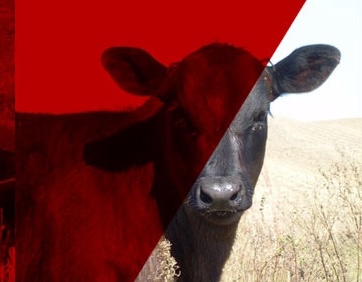Many livestock producers have shown a strong interest in using garlic to reduce horn flies on pastured cattle. Garlic is commercially available in a pre-mix mineral or can be purchased and mixed by the producer in mineral or salt, normally at a concentration of 2% garlic.
Garlic powder contains a mixture of volatile sulfur-based bioactive compounds (Lawson and Gardner, 2005), which have been shown to exhibit insect repellent and anti-viral properties (Thakur and Gupta, 2013). It has been theorized strong odors emitted from the skin of the animals come from organosulfur compounds metabolized after consuming garlic-based products and these volatile metabolites of garlic are transported in the blood and emitted from the skin and thus discourage flies from taking a blood meal (Maia and Moore, 2011).
Few scientific studies have been conducted to explore the activity of garlic against the horn fly. A two-year study conducted in Canada by Durunna and Lardner (2021) demonstrated in the first year that horn fly numbers were reduced by 47% on cattle offered a free choice 2% garlic-infused salt compared with an untreated group. Results from the second year demonstrated no differences in horn fly numbers between the garlic treatment and the control.
The question is often raised is does it work in reducing horn fly numbers? To address that question I have conducted two studies with garlic, mixed with either mineral or salt and presented to cattle in a free choice arrangement. A control group (untreated cattle) was included in both studies and used as a comparison to determine efficacy. In both studies, horn fly numbers exceeded the Economic Injury Level of 200 flies throughout the fly season. One study required a rescue treatment to reduce horn fly numbers. I have not observed a significant reduction in horn fly numbers with garlic.
Literature Cited
Durunna, O. and Lardner, H., 2021. Impact of Garlic-infused Salt Supplement on Fly Abundance, Salt Intake, and Defensive Behaviors in Grazing Beef Cows. Sustainable Agriculture Research, 10(526-2021-497), pp.54-60.
Lawson, L. D., & Gardner, C. D. (2005). Composition, stability, and bioavailability of garlic products used in a clinical trial. Journal of Agricultural and Food Chemistry, 53, 6254-6261.https://doi.org/10.1021/jf050536+
Thakur, M., & Gupta, D. (2013). Plant Extracts as oviposition deterrents against fruit flies, Bactrocera spp. infesting vegetable crops. Pesticide Research Journal, 25,24-28.
Maia, M. F., & Moore, S. J. (2011). Plant-based insect repellents: a review of their efficacy, development, and testing. Malaria Journal, 10, S1-S11.https://doi.org/10.1186/1475-2875-10-S1-S11
Interviews with the authors of BeefWatch newsletter articles become available throughout the month of publication and are accessible at https://go.unl.edu/podcast. You can subscribe to the BeefWatch newsletter here: http://go.unl.edu/Beefwatch_subscribe.
Topics covered:
Backgrounding/stocker/yearling, Pasture & range, Grazing systems & best practices, Cattle health & BQA, Cattle health, Fly & insect control, Research

